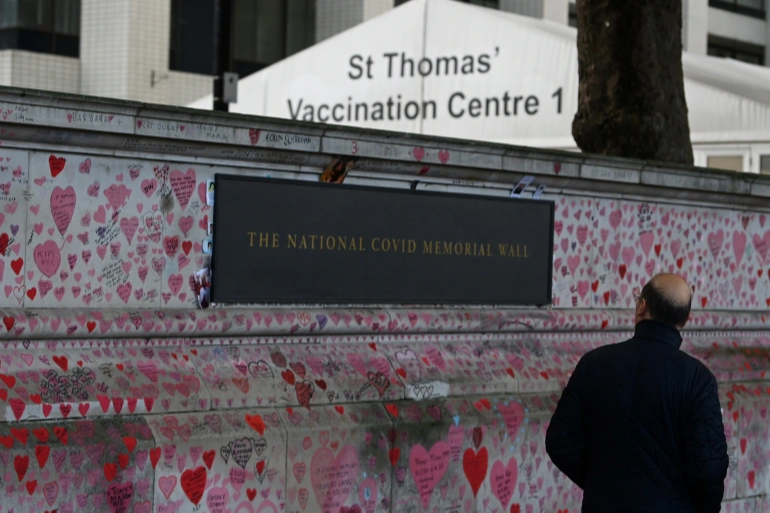
Daily cases have topped 50,000 and deaths are rising, but Boris Johnson’s government is refusing calls to re-enforce measures that scientists say would help contain the virus.
London, October 22 (RHC)-- Pressure is mounting on the United Kingdom’s government to re-enforce COVID-19 restrictions as infections surge, with medical experts warning of a looming crisis. The UK reported 52,009 new cases on Thursday, the highest daily figure since July 17 and the ninth consecutive day that cases have topped the 40,000 mark.
The death toll is also climbing. On Tuesday, officials recorded the highest daily toll since early March, with 223 deaths. More than 8,000 people are currently hospitalised with the virus.
Alarmed by the situation, senior healthcare figures are publicly urging British Prime Minister Boris Johnson to tackle transmission rates by making face masks mandatory, advising people to work from home and raising awareness about the benefits of ventilated public spaces.
Under a current “Plan A” to manage the pandemic in autumn and winter, officials are focused on third-shot booster vaccinations to millions of people and offering those aged 12-17 a single dose of the vaccine produced by Pfizer-BioNTech. Mask wearing, which has become far less common in recent months across the country, and social distancing are loosely encouraged but not mandatory.
Without immediate intervention, experts say more will needlessly die and the UK’s National Health Service (NHS) risks becoming overwhelmed. “If we carry on as we are now, we are going to have a very alarming and devastating winter crisis,” Zubaida Haque, a member of the UK’s Scientific Advisory Group for Emergencies (SAGE), told Al Jazeera.
“And the worst part of that is that, unlike last autumn and winter, we [now] have the solutions,” she said, citing the second wave of COVID-19 infections that prompted Johnson to impose nationwide lockdowns.
“We have the vaccines and we know which public health protections are effective … but the government has removed all public health protections to protect the vaccination program.”
}Despite the clamor, the government is resisting calls to launch its “Plan B” contingency strategy. Since removing almost all restrictions in England in mid-July – on a day Johnson dubbed “Freedom Day” – officials have pinned hopes on the national vaccination programme and natural immunity built up among the UK’s nearly 70 million-strong population to keep COVID-19 in check.
Johnson believes the UK should “learn to live with this virus” and government planning documents state ministers will not pivot to “Plan B” unless the NHS is deemed likely to come under “unsustainable pressure.”
Under “Plan B”, face masks in some settings would be mandatory and employees would be asked to work from home where possible. So-called vaccine passports could also be introduced, requiring people to show proof of vaccination, recovery from the virus or a recent negative test to enter some venues or attend mass events.
On Wednesday, Health Secretary Sajid Javid said the government would not switch to its contingency plan “at this point”, but as he cautioned that cases could soon rise to 100,000 a day, he warned that slow vaccine uptake would increase the likelihood of restrictions.
But the chair of the British Medical Association, Chaand Nagpaul, said the time to act “is now.”
“It is wilfully negligent of the Westminster government not to be taking any further action to reduce the spread of infection, such as mandatory mask wearing, physical distancing and ventilation requirements in high-risk settings, particularly indoor crowded spaces,” Nagpaul said in a statement on Wednesday.
“These are measures that are the norm in many other nations,” he added, describing the UK as an “international outlier” on pandemic control. Critics have decried the UK throughout the pandemic, suggesting it was slow to lockdown during the first and second waves in 2020 and then too quick in lifting restrictions this year.
“We are rapidly approaching a position where, yet again, the government is delaying for too long, and equivocating over taking action. This is the time to learn the lessons of the past and act fast, or else we will face far more extreme measures later,” Nagpaul said.

